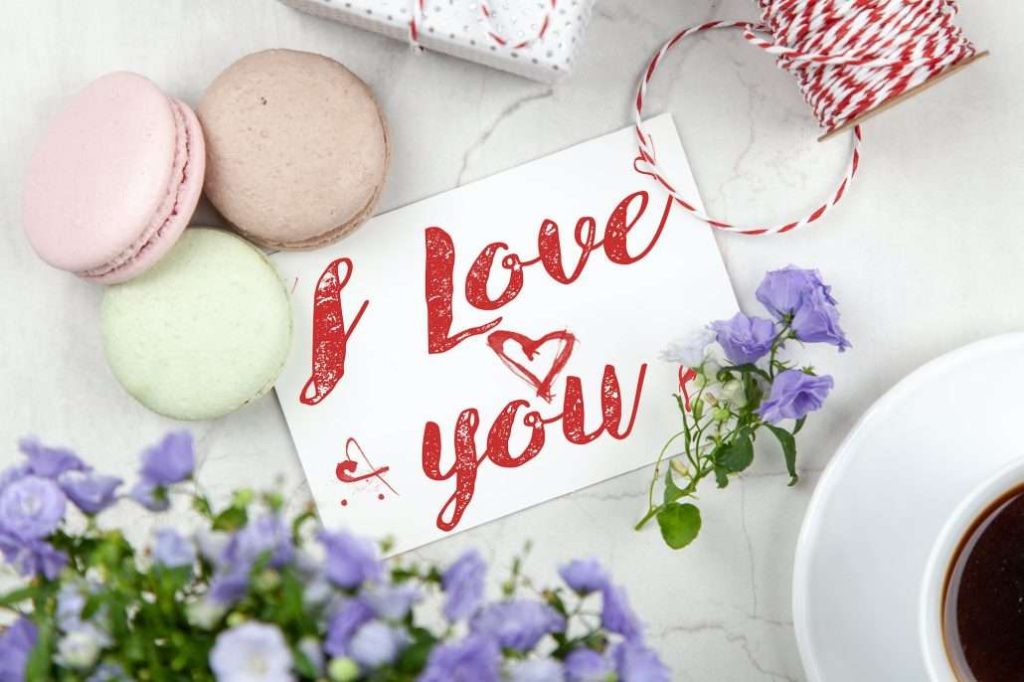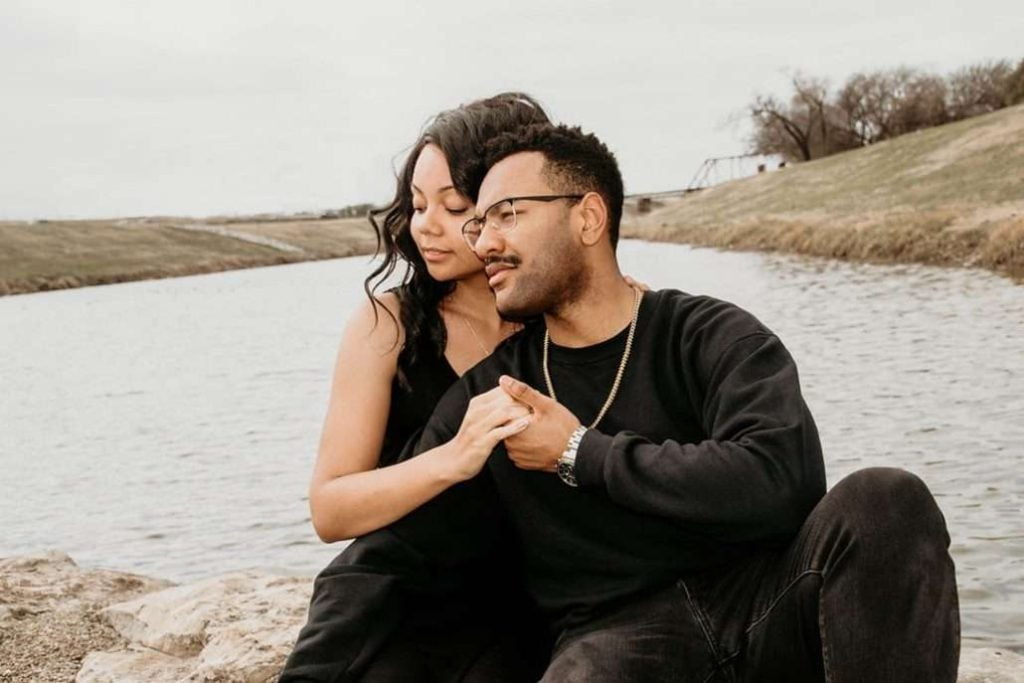Key Takeaways:
- There’s no definitive “right” time – go with your gut instinct.
- Look for signs you’re both ready like intimacy, meeting families, long-term plans, etc.
- Don’t force it, but know it’s OK to say it first if you feel prepared.
- Make sure your feelings are genuine love vs just infatuation.
- Understand if they need more time and give them space.
- Continue nurturing the relationship after saying it through actions and quality time.
- Avoid saying it too casually, frequently, or for the wrong reasons.
- Remember mutual trust and understanding matter more than just those three words.

Figuring out when to say “I love you” for the first time can be tricky. There’s no definitive right moment or perfect formula – it’s different for every relationship. But there are some signs that may indicate you’re both ready to take that next step. In this post, we’ll explore how to tell if it’s the right time, things to consider before saying it, and what to do if only one person is ready. Let’s dive in!
15 Creative Ways to Say “I Love You”
While “I love you” encompasses it all, there are many other beautiful phrases to express your undying devotion. Get creative with these alternatives – mix and match to find what resonates most:
- “You’re my person.”
- “I adore you.”
- “My heart is yours.”
- “You make me whole.”
- “I dig you.”
- “You’re my better half.”
- “You complete me.”
- “I’m crazy for you.”
- “You’re my happily ever after.”
- “You have the key to my heart.”
- “You’re my endgame.”
- “You’re my soulmate.”
- “I want you for all my tomorrows.”
- “Love of my life.”
- “You make my world go round.”
Remember, the words are meaningless unless backed up by genuine feeling and action. Express your love in creative ways that speak to the unique bond you share.
Sweet Things to Do After Saying “I Love You”
After taking the big leap and expressing your love, make sure your partner feels special with these romantic gestures:
- Cook them a candlelit dinner.
- Create a customized playlist of “your” songs.
- Fill their space with fragrant flowers and love notes.
- Plan a couples massage or spa day.
- Frame a meaningful photo from your relationship.
- Slow dance in the moonlight.
- Watch the sunset together.
- Create vision boards for your future.
- Exchange heartfelt love letters.
- Gaze at the stars while cuddling.
Big declarations of love deserve equally thoughtful follow-through. Let them know they have your whole heart through both words and special gestures.
When Should You Avoid Saying “I Love You”?
While there’s no perfect time, you generally want to avoid saying it too soon or for manipulative reasons. Wait to say “I love you” if:
- It’s only been a few weeks.
- You barely know anything real about them.
- You’re not sure about the relationship’s future.
- You only feel lust, not love.
- You want to avoid a fight or confrontation.
- You hope it will inspire change or growth.
- You want to distract from other issues.
- You’re trying to get them to stay with you.
Rushing those three words or using them improperly can backfire. Make sure you genuinely mean them before putting your heart out there.
How Often Should You Say “I Love You”?
Don’t let the expression lose its power through overuse. While there’s no magic number, keep these tips in mind:
- Say it when you truly feel overcome with love – let it flow naturally.
- Reciprocate when they say it but don’t feel pressured.
- Use alternatives like “I adore you” to mix it up.
- Express love through thoughtful actions in between.
- Savingsome extra special moments just for those three words.
- If you say it 100 times a day, make sure you 100% mean it.
- Look for cues about whether you’re saying it too often or not enough.
- Have an open dialogue if you prefer different frequencies.
Make sure both partners feel satisfied with the amount and meaning behind this powerful phrase.

Reasons Not to Say “I Love You”
While expressing love is generally positive, there are a few reasons you may want to hold back those three little words:
- You have doubts about the relationship.
- Your partner is pressuring you to say it.
- You’re hoping it will fix issues.
- You’ve only been dating briefly.
- You don’t want your partner to feel trapped.
- You’re still emotionally guarded from past hurts.
- You care deeply but aren’t “in” love.
- You’re unsure about the future together.
It’s okay to wait until you’re absolutely ready. Forcing this expression of commitment too soon often backfires. Trust your gut.
Do Grand Gestures to Say “I Love You”?
Big, showy displays like promposals or flash mobs can be fun ways to declare your love when done right. But grand gestures have some drawbacks to keep in mind:
- Your partner may find them awkward or overwhelming.
- Sincerity can get overshadowed by spectacle.
- It puts pressure on your partner to react a certain way.
- The meaning can get lost if it’s not the right stage of your relationship.
- It’s hard to top once you set the bar so high.
- Low-key, regular romance is often more meaningful.
Make sure it aligns with your partner’s personality. Otherwise opt for something from the heart that shows you know them well.

Responding When Someone Says “I Love You”
Hearing your partner utter those three special words is an amazing feeling. Here are some great ways to respond:
- Say “I love you too” if you genuinely feel the same.
- Express how much they mean to you.
- Talk about how much you care for them.
- Thank them for sharing and being vulnerable.
- Smile, hug, kiss, and savor the moment together.
- Plan a special date night to celebrate.
- Send flowers, a card, or another thoughtful gesture.
- Reciprocate when you feel truly ready (no pressure).
However you choose to react, make sure it’s authentic. This milestone deserves a heartfelt response.
How to Recover if You Say It Too Soon
Letting “I love you” slip prematurely can be embarrassing. But don’t panic – you can come back from it gracefully:
- Explain that you got caught up in the moment and voiced feelings too soon.
- Assure them there’s no pressure to say it back right now.
- Clarify you care deeply but want to let the relationship progress naturally.
- Thank them for their understanding and patience.
- Focus on enjoying the present rather than rushing.
- Don’t keep repeating it – stick to other romantic phrases for a while.
- Wait until you’ve reached relationship milestones before saying it again.
- Continue building intimacy, trust, and partnership.
- Pay attention to whether they seem comfortable with the pace.
- Don’t let it damage your confidence – these things happen.
With honesty, openness and humor, an premature “I love you” doesn’t have to be a big deal. Let your authentic feelings develop in due time.

Summary
| There’s no definitive “right” time to say “I love you.” Pay attention to signs you’re both ready. |
| Let it happen naturally rather than forcing it. Don’t stress about who says it first. |
| Make sure you mean it genuinely. Love is more than just infatuation. |
| Understand if they need more time and don’t pressure them. |
| Keep nurturing intimacy and trust after saying it. |
| Complement those three words with thoughtful actions. |
| Avoid saying it too casually or for the wrong reasons. |
| Respond positively when your partner expresses love, even if you aren’t ready yet. |
FAQs
Is it best to say “I love you” first or wait for your partner?
There’s no right or wrong here – it depends on your personal preference. If you feel ready, saying it first can be bold and romantic. But waiting allows your partner time to develop feelings without pressure. Do what feels natural for your relationship.
What if my partner doesn’t say it back right away?
Don’t panic if your “I love you” isn’t immediately reciprocated. It doesn’t mean they don’t care about you. Give them time to process it and say it when they feel ready. Continue building intimacy in the meantime.
Is it good to say “I love you” over text/email?
It’s generally recommended to say “I love you” in person the first time to gauge your partner’s reaction and have an intimate moment. But if you’re apart or unable to say it face-to-face, a heartfelt text, card, or email is better than not saying it at all when you feel ready.
What if my partner says it constantly but it feels less meaningful?
If your partner says “I love you” so frequently that it loses significance, gently bring up that you’d prefer they save it for special moments when it feels more meaningful. Or suggest alternatives like “I adore you” for everyday use.
Is an elaborate grand gesture a good way to say “I love you”?
It depends on your partner’s personality. Some people find big public displays of affection awkward or overwhelming. Opt for a heartfelt approach that shows you understand your partner’s individual romantic style.

What if my partner said it while drunk and now doesn’t remember?
Don’t put too much stock in tipsy “I love yous.” Wait until you’re both sober to have an honest discussion about your feelings and where the relationship is headed.
Is saying “I love you” too soon a relationship deal-breaker?
Not necessarily. As long as you communicate openly, move at a pace that feels right for both people going forward, and give your partner space, an early “I love you” doesn’t have to spell doom. Be patient and let things unfold naturally.
Can you be “in love” without saying “I love you”?
Absolutely. Some people convey love through their actions, gestures, and commitment rather than verbal expressions. Judge your relationship on the overall feelings, intimacy, and partnership you share.
What if you love someone but aren’t “in love” yet?
It’s okay to have strong caring feelings for someone without being ready to commit to full romantic love. Express fondness for them without using the “L word” until your feelings naturally develop further. There’s no set timeline.
The Bottom Line
Navigating when, why and how to say “I love you” can be tricky but rewarding. By understanding your own feelings, moving at the right pace, communicating openly and thoughtfully, you can share those three special words in a meaningful way that brings you and your partner closer together.

Meet Brenda Tillman: your go-to expert in Cognitive Behavioral Therapy! Not only is she a seasoned therapist, but she’s also a passionate mom blogger who never misses a beat. Dive deep into her insightful blogs, backed by her extensive coursework in Parenting Skills, Learning, and Education. Brenda’s heartwarming family – a son, two daughters, and their adorable pets – often take center stage in her writings. From parenting hacks and relationship tips to health & fitness nuggets, Brenda has been enlightening her readers for over half a decade. Stick around, and you’re bound to discover gems from a mom who wears many hats with grace!
Reviewed By: Joanna Perez and Marcella Raskin
Edited By: Lenny Terra
Fact Checked By: Gabrielle J. Smith
Photos Taken or Curated By: Matthew Mansour